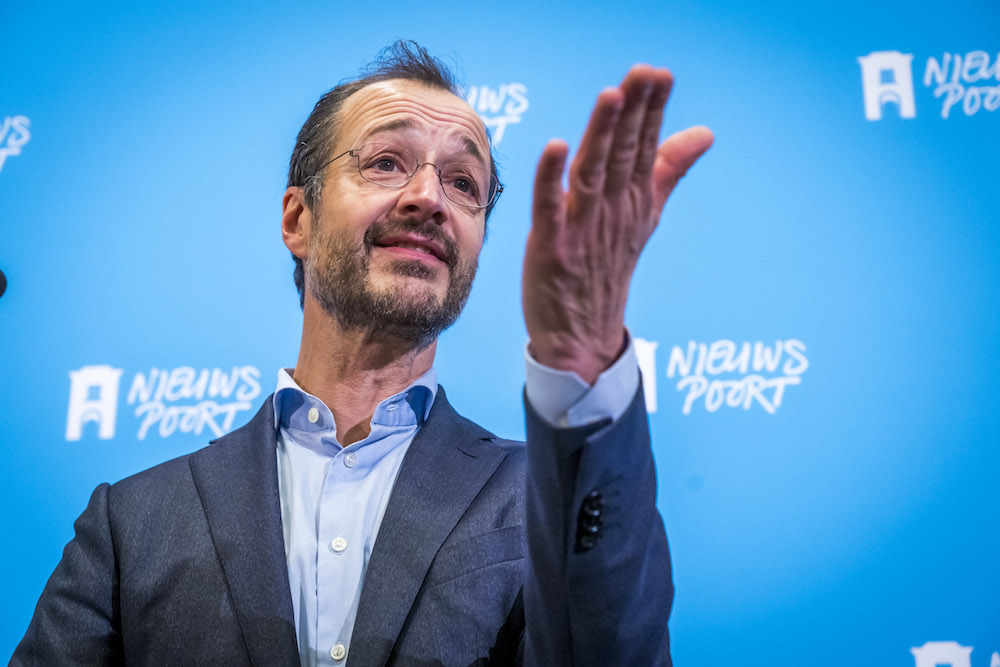Climate agreement published, industry ‘gets an easy ride’


After nine months of talks, the 300 organisations, lobby groups and private individuals taking part in round-table climate talks have drawn up a 200 plus page report outlining ways the Netherlands can cut carbon dioxide emissions.
Five separate groups have been working on the plans, covering mobility, electricity, industry, agriculture and the built environment. The aim is to reduce CO2 emissions by 49% in 2030, compared with 1990.
The presentation on Friday, however, was marred by environmental groups and the FNV trade union refusing to sign the agreement. Green groups are angry that industry won’t face a carbon tax, and the FNV says the impact on low income households will be too great.
Opposition MPs are also critical and environment minister Eric Wiebes said on Friday that the agreement is ‘not definitive’ but an ‘important first step’.
In particular, the cabinet will look closely at the impact of the measures on income. ‘If people are going to be faced with high costs and investments, then we have a problem,’ he said. ‘Everyone has to be able to participate.’
The main measures:
- By 2021 all local authorities should have briefed home owners and landlords when each of their neighbourhoods will be cut off from the gas supply
- By 2030, some 1.5 million homes and buildings should be properly insulated and gas-free
- Homeowners faced with large bills for insulation will be able to get a special loan which is attached to the house. The outstanding loan will remain with the house and its new owner if they move
- Homeowners will also be able to apply for subsidies – €100m to €150m will be available per year
- The tax on natural gas will go up. Low-income households will get extra help over a four year period
- Housing corporations must start making their properties durable at a rate of 30,000 to 50,000 a year
- Private landlords will have to beef up the insulation and change the form of heating for their own properties. Rents in the future will partly depend on the energy rating a property has
- In 2021 people buying an electric car costing under €60,000 will be able to get a subsidy of €6,000. This will go down by €400 a year until it hits €2,200 in 2030
- The cost of buying a diesel or petrol car will go up from 2021, as will the tax on petrol and diesel
- No new petrol or diesel cars may be sold in the Netherlands from 2030
- Industry will face higher energy taxes and the 350 biggest polluters will be have to make plans to cut carbon dioxide emissions. Companies which fail to to this will be fine and the money put into a fund to pay for CO2-reducing projects
- Coal and gas-fired power stations will face a tax on CO2 emissions, but not as high as agreed in the coalition agreement
- All coal-fired power stations in the Netherlands will be shut by 2030
- The number of wind and solar farms will be expanded
Economist Rick van der Ploeg told the Volkskrant that even though heavy industry is the biggest polluter, it will largely escape sanctions. He too backs the introduction of a tax on CO2.
Van der Ploeg, a professor at Oxford University, told the paper that the government’s strategy is a ‘disaster’. ‘If I was in the Netherlands, I would be protesting,’ the former Labour minister said.
‘The subsidies for heavy industry will be paid by the man in the street via the energy tax and other tax increases,’ he said. ‘Carbon pricing is not only cheaper, but you can do good things with the proceeds.’
Regrettable
Ankie Broekers-Knol, a VVD senator and current leader of the upper house of parliament, told the Telegraaf that she considers the climate agreement to be ‘regrettable’.
It is not only undemocratic, but puts too much weight on the shoulder of the ordinary man, she told the paper.
Thank you for donating to DutchNews.nl.
We could not provide the Dutch News service, and keep it free of charge, without the generous support of our readers. Your donations allow us to report on issues you tell us matter, and provide you with a summary of the most important Dutch news each day.
Make a donation